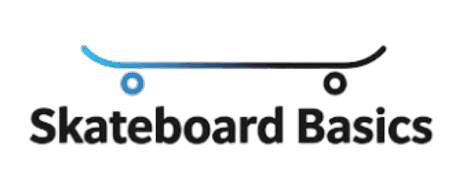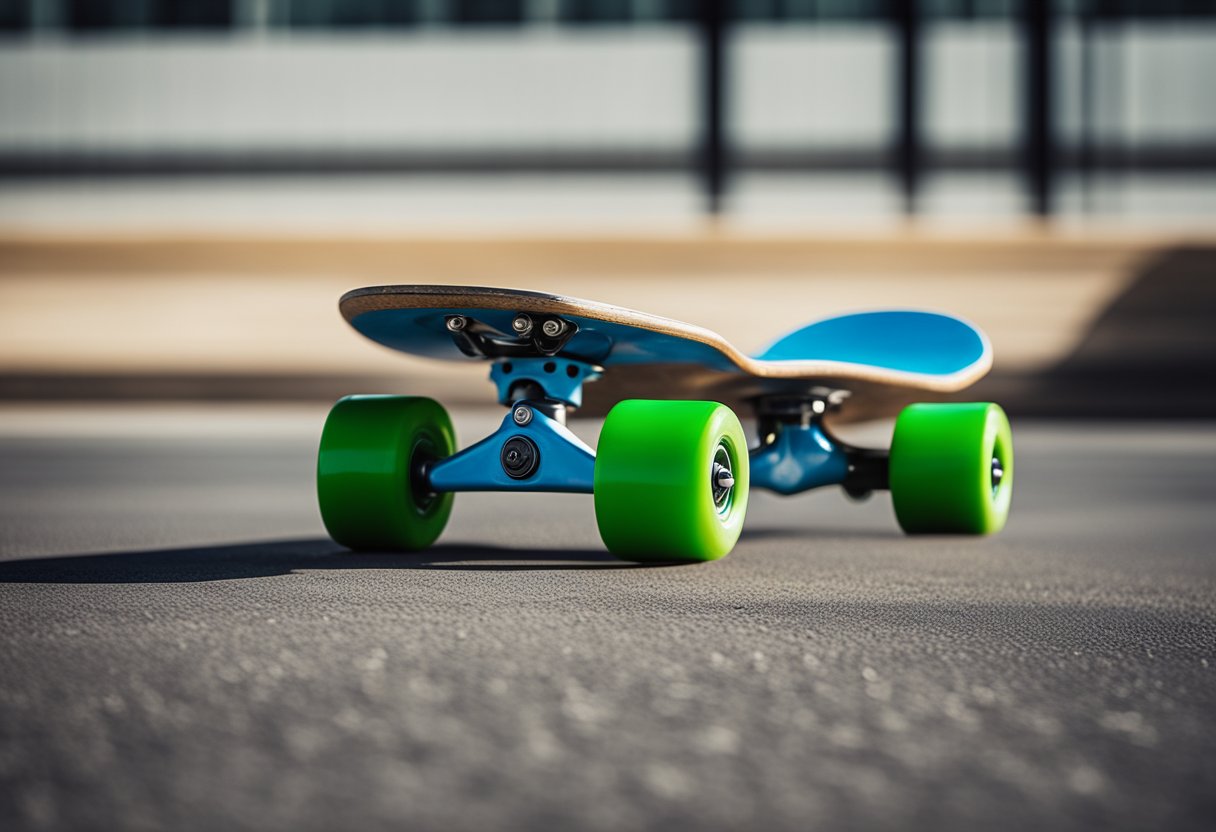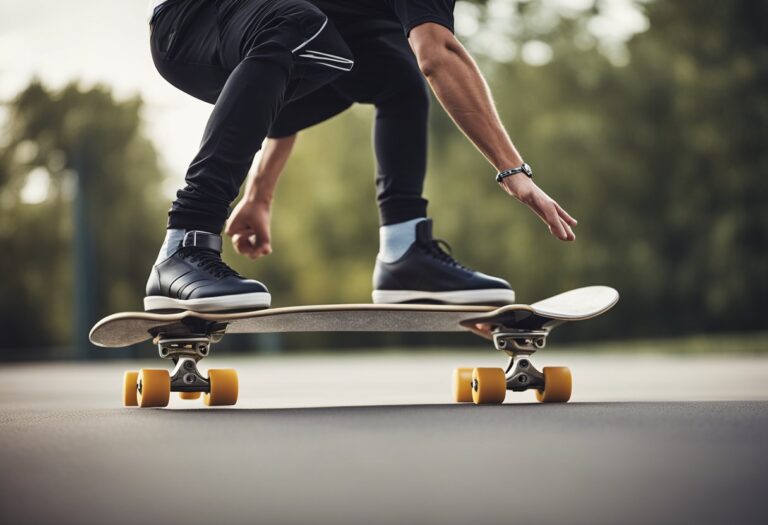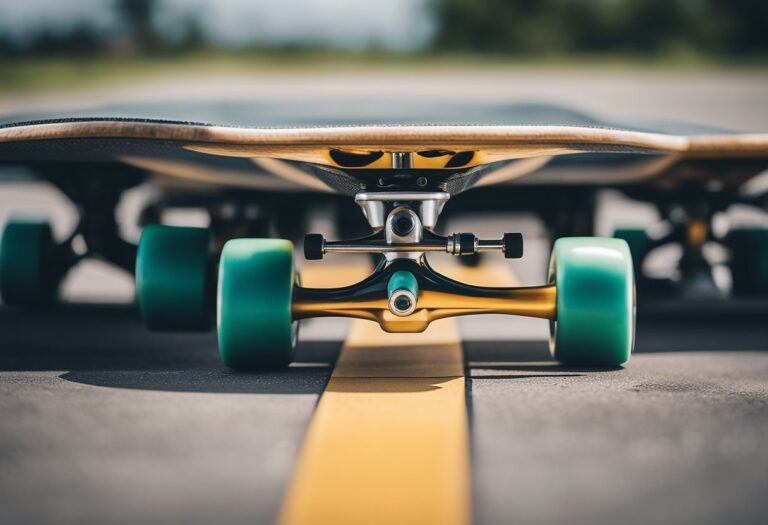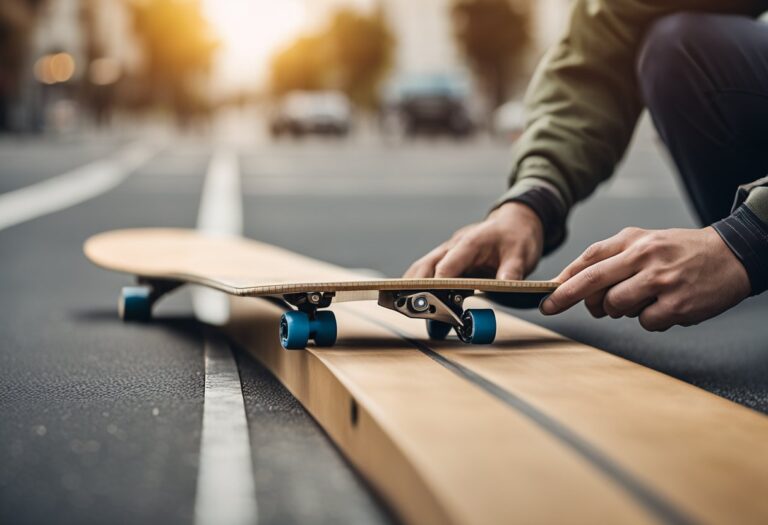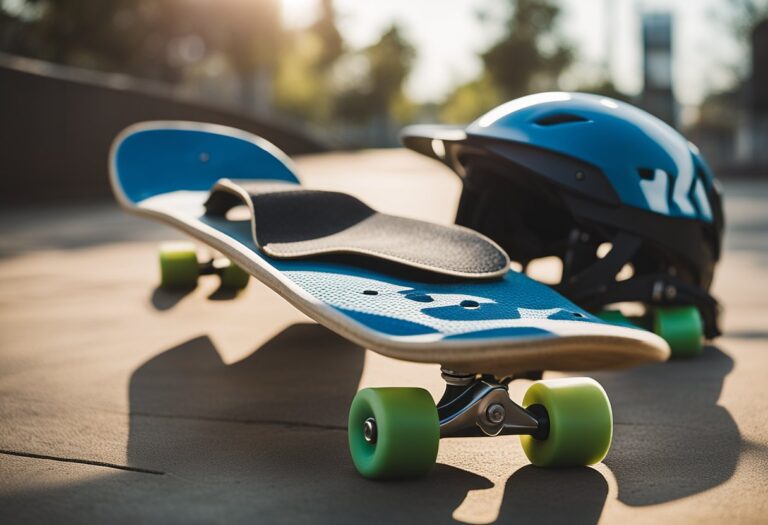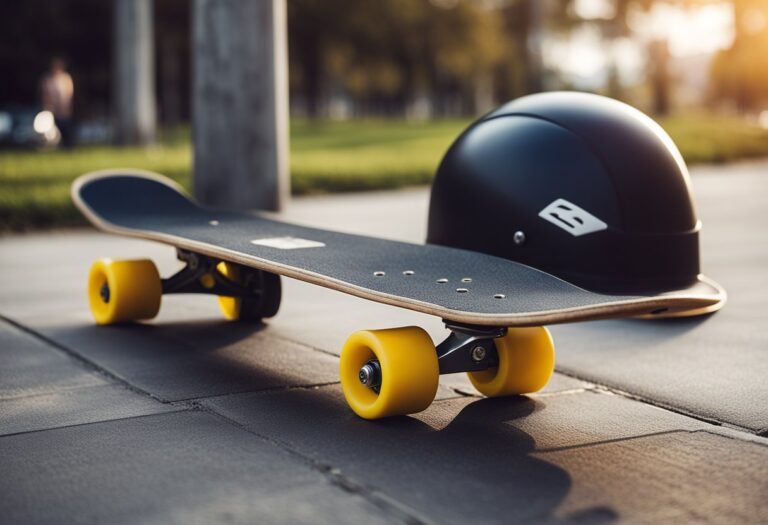What Type of Skateboard is Best for Beginners: A Comprehensive Guide
Skateboarding is a popular activity that has been around for decades. It’s a fun way to exercise, socialize and explore the outdoors. However, for a beginner, choosing the right skateboard can be a daunting task. With so many options available, it’s important to understand which skateboard is best suited for a beginner.

Understanding Skateboard Types Skateboards come in different shapes and sizes, and each type is designed for a specific purpose. For example, a longboard is ideal for cruising and commuting, while a street skateboard is designed for tricks and stunts. Understanding the different types of skateboards and their uses is essential when choosing a skateboard as a beginner.
Factors to Consider Choosing the right skateboard involves considering several factors, including the rider’s skill level, body type, and personal preference. Some skateboards are easier to ride than others, and some are better suited for different types of terrain. Additionally, safety gear is essential for any beginner skateboarder to prevent injuries.
Key Takeaways
- Understanding the different types of skateboards is important when choosing a skateboard as a beginner.
- Several factors should be considered when selecting a skateboard, including the rider’s skill level and body type.
- Safety gear is essential for any beginner skateboarder to prevent injuries.
Understanding Skateboard Types

When it comes to choosing a skateboard, beginners may feel overwhelmed by the variety of options available in the market. Understanding the different types of skateboards can help beginners make an informed decision.
Complete Skateboards
Complete skateboards are ideal for beginners as they come fully assembled and ready to ride. They are available in different sizes and shapes, making it easier for beginners to choose the right one based on their height and weight.
The deck, trucks, wheels, and bearings are all pre-selected and designed to work together, ensuring a smooth and stable ride. Complete skateboards are also affordable, making them a great option for beginners who are just starting out.
Custom Skateboards
Custom skateboards are a great option for beginners who want more control over the components of their skateboard. With custom skateboards, beginners can choose each component individually, including the deck, trucks, wheels, and bearings.
This allows beginners to create a skateboard that is tailored to their specific needs and preferences. However, it is important to note that custom skateboards can be more expensive than complete skateboards, and beginners may need some knowledge of skateboard components to make the right choices.
In summary, beginners can choose between complete and custom skateboards based on their budget and level of knowledge about skateboard components. Complete skateboards are a great option for those who want an affordable and easy-to-ride skateboard, while custom skateboards offer more control and customization options.
Factors to Consider

When it comes to choosing a skateboard for beginners, there are several factors to consider. Each of these factors plays a critical role in determining the type of skateboard that is best suited for a beginner.
Deck Shape and Size
The deck is the most crucial part of a skateboard, and its shape and size can significantly affect the rider’s stability and control. For beginners, it is recommended to choose a deck with a width between 7.5 and 8 inches. A wider deck provides better stability, while a narrower one offers more control.
Wheel Type
The type of wheels you choose can also impact your riding experience. For beginners, it is recommended to go for softer wheels as they provide a smoother ride and offer better grip. Harder wheels, on the other hand, are better suited for experienced riders who prefer speed and control.
Truck Stability
Trucks are the metal parts that connect the deck to the wheels. They play a crucial role in determining the skateboard’s stability. For beginners, it is recommended to choose trucks that are not too loose or too tight. Loose trucks provide better turning ability, while tight trucks offer more stability.
Bearings and Grip Tape
Bearings are the small metal balls that allow the wheels to spin, and they significantly impact the skateboard’s speed and performance. For beginners, it is recommended to choose bearings that are easy to maintain and clean. Grip tape is the rough surface on top of the deck, which provides traction for the rider’s feet. It is recommended to choose grip tape that is not too rough or too smooth.
By considering these factors, beginners can choose a skateboard that is best suited for their needs and skill level.
Recommended Skateboards for Beginners

Skateboarding is a great way to have fun and stay active. However, if you are just starting out, choosing the right skateboard can be overwhelming. Here are some recommended skateboards for beginners that will help you get started on the right foot.
Mini Decks
Mini decks are perfect for beginners who want to learn basic tricks like ollies and kickflips. They are smaller in size and easier to maneuver, making them ideal for younger riders or those with smaller feet. Mini decks are also great for cruising around town and getting from point A to point B.
Longboards
Longboards are a good choice for beginners who want to focus on cruising and carving. They are longer and wider than traditional skateboards, which provides more stability and a smoother ride. Longboards are also great for commuting and traveling longer distances.
Cruisers
Cruisers are a hybrid between mini decks and longboards. They are smaller than longboards but larger than mini decks, making them perfect for riders who want a balance between stability and maneuverability. Cruisers are also great for cruising around town and commuting.
When choosing a skateboard, it’s important to consider your skill level, riding style, and personal preferences. By selecting one of these recommended skateboards for beginners, you can start your skateboarding journey with confidence and ease.
Safety Gear Essentials

Helmets
When it comes to skateboarding, wearing a helmet is a must. It is the most important piece of safety equipment that a beginner should invest in. A good helmet should fit snugly on the head, covering the forehead and the back of the head. It should also have a chin strap that can be adjusted to fit comfortably.
When shopping for a helmet, it is important to look for one that meets safety standards such as ASTM F1492 or CPSC. These standards ensure that the helmet is capable of protecting the head from impact. It is also recommended to choose a helmet with a hard outer shell and a soft inner lining for maximum protection.
Pads and Guards
In addition to a helmet, beginners should also consider wearing pads and guards to protect their knees, elbows, and wrists. Pads and guards come in different sizes and materials, so it is important to choose ones that fit properly and are comfortable to wear.
Knee pads and elbow pads should cover the joints completely and be secured with adjustable straps. Wrist guards should be worn snugly and cover the wrist bones. It is important to make sure that the pads and guards do not restrict movement or interfere with the skateboarder’s balance.
Overall, wearing safety gear is essential for beginners to prevent injuries while learning how to skateboard. By investing in a good helmet, knee pads, elbow pads, and wrist guards, beginners can enjoy skateboarding with peace of mind.
Maintenance and Care

Taking care of a skateboard is important to ensure that it lasts longer and performs well. Here are some tips on how to maintain and care for a skateboard:
Keep it clean
Skateboards can accumulate dirt, dust, and debris from regular use. It’s important to keep the board clean to prevent any damage to the bearings and wheels. To clean the skateboard, wipe it down with a damp cloth and dry it thoroughly. Avoid using harsh chemicals that can damage the grip tape.
Check the hardware
Regularly check the hardware on the skateboard to ensure that it’s tight and secure. Loose hardware can cause the board to wobble and affect the performance. Use a skate tool to tighten any loose bolts or nuts.
Check the bearings
The bearings on a skateboard can get dirty and slow down the performance. It’s important to clean and lubricate the bearings regularly to keep them running smoothly. Use a bearing cleaner and lubricant to maintain the bearings.
Store it properly
When not in use, store the skateboard in a cool, dry place. Avoid leaving it in direct sunlight or extreme temperatures. Storing the board properly can prevent any warping or damage to the deck.
By following these maintenance and care tips, beginners can keep their skateboards in good condition and ensure that they can continue to enjoy their new hobby.
